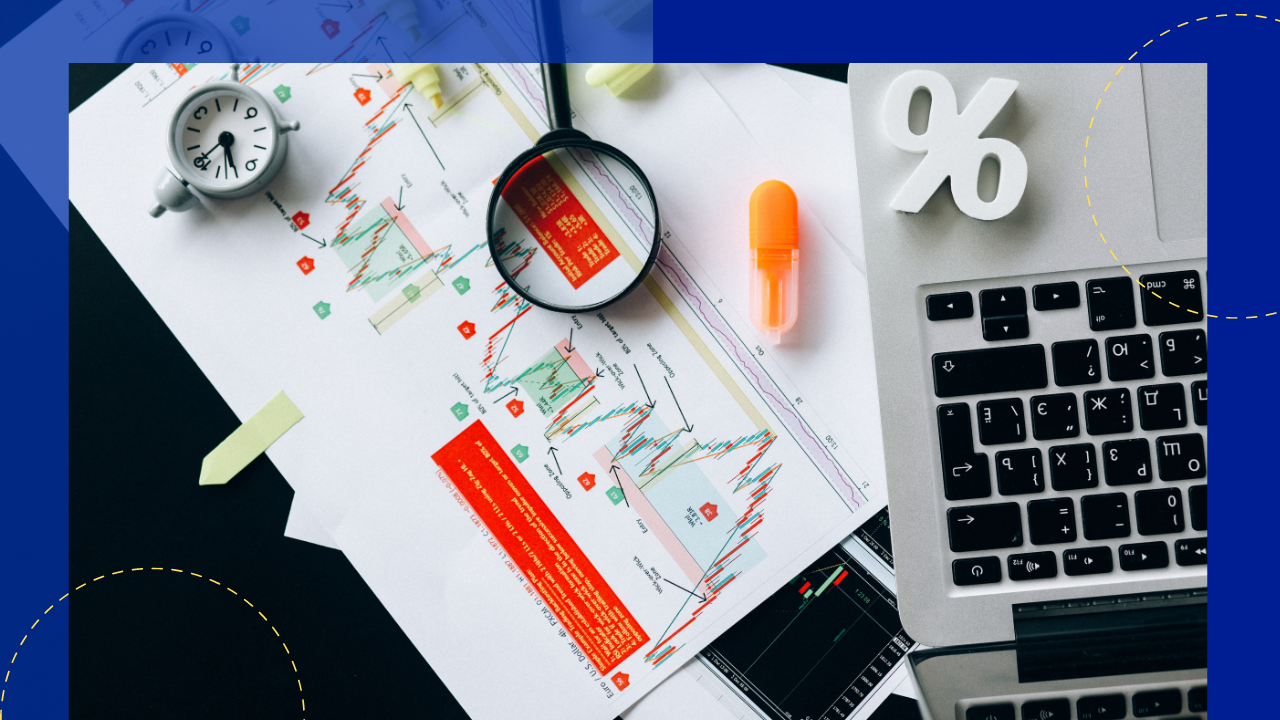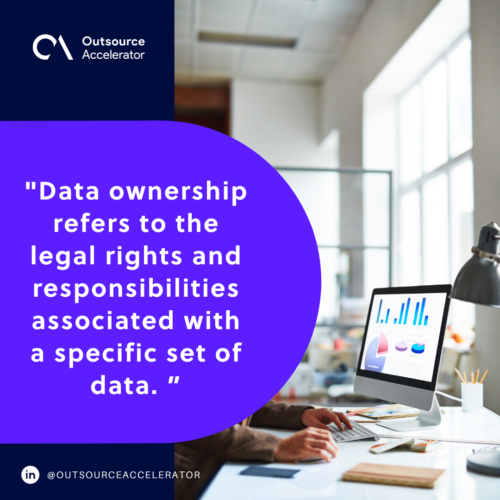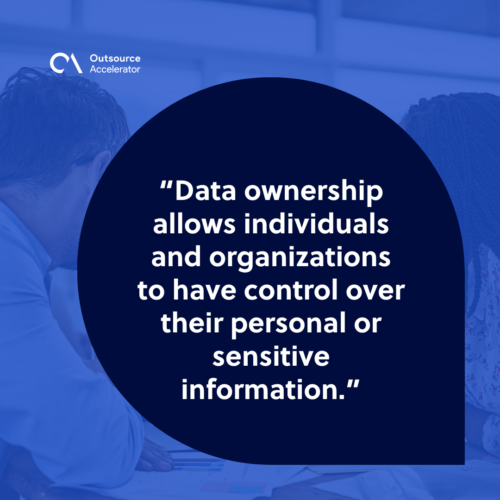Significance of data ownership in successful data governance

Data has become an invaluable asset for businesses, driving decision-making, innovation, and competitive advantage.
However, as data continues to grow in volume and complexity, a critical question arises: who has the right to manage specific data sets?
Understanding the answer is key to effective data management.
This article will shed light on the concept of data ownership, exploring its importance and how it is crucial for successful data governance. Discover why it is essential for ensuring data accuracy, security, and compliance within your organization.
What is data ownership?
Data ownership refers to the legal rights and responsibilities associated with a specific set of data.
It encompasses who has the authority to access, modify, share, and manage the data, as well as who is accountable for its accuracy, security, and compliance with relevant regulations.
Data ownership can maintain data integrity, protect sensitive information, and ensure that information is used ethically and effectively within an organization.
Clear data ownership helps streamline data governance processes, enabling better decision-making and safeguarding the organization’s valuable information assets.

3 types of data ownership rights
In the digital age, where data plays a critical role in economies and societies, understanding data ownership is vital.
Here are three types of data ownership rights:
1. Legal ownership
Legal ownership refers to the rights conferred by laws and regulations regarding data. It determines who has the legal right to control, access, and use data.
Legal ownership is typically defined by contractual agreements, intellectual property laws, or specific regulations governing data protection and privacy.
For example, organizations may assert legal ownership over customer data collected through transactions, subject to compliance with data protection laws.
2. Economic ownership
Economic ownership covers the right to derive economic value from data. This includes rights to monetize, license, or sell data assets.
Economic ownership often overlaps with legal ownership but can be distinct, particularly in cases where data is shared or exchanged between parties under contractual terms.
Entities may have economic ownership over aggregated data sets that provide insights valuable to third parties.
3. Control and access rights
Control and access deal with the ability to determine how data is used, managed, and accessed.
Even if legal and economic ownership rights are vested in one entity, control and access rights may be shared or distributed among multiple parties.
This can include permissions granted to users, data subjects, or partners to access specific data sets or use data for designated purposes.
Control and access rights are crucial in data governance frameworks to ensure compliance, security, and ethical data use.
Knowing these data ownership rights helps clarify who is responsible for data at every stage, from creation and collection to storage, sharing, and analysis.
Effective management of data ownership rights is essential for fostering trust among stakeholders and maximizing the value and utility of data assets.
Importance of data ownership
Understanding and asserting data ownership rights is essential for both individuals and businesses. Below are a few key reasons why data ownership is of significant importance:
Privacy protection
Data ownership allows individuals and organizations to have control over their personal or sensitive information.
By claiming ownership, they can determine who has access to their data, how it is used, and for what purposes. This control helps protect privacy and prevent unauthorized use or disclosure of sensitive data.

Security risk management
When companies maintain data ownership, they can implement robust security measures to safeguard their sets of information.
This includes implementing access controls, encryption, and other security mechanisms to prevent data breaches and unauthorized access.
Compliance and legal obligations
Data ownership is closely tied to compliance with data protection regulations and legal obligations.
By asserting ownership, businesses can ensure they are meeting their legal responsibilities. They can also obtain consent for data collection and processing and maintain data protection standards.
Data monetization and intellectual property
Data ownership allows firms to explore opportunities for data monetization and derive value from their data assets.
Legally owning data allows them to protect their intellectual property (IP) rights and negotiate fair agreements for data sharing or commercialization.
Accountability and liability
Organizations can be held accountable for the proper handling and use of data by averting ownership over it. This can include ensuring data accuracy, transparency, and ethical practices in data processing.
In case of data breaches or misuse, clear data ownership helps establish liability and responsibility.
Data ownership: Foundation for effective data management
Embracing data ownership not only empowers data stakeholders to control and govern their data assets but also establishes a framework for responsible data practices.
By familiarizing and asserting ownership rights over data, organizations can:
- Ensure privacy protection
- Enhance security measures
- Comply with legal obligations
- Explore data monetization opportunities
- Uphold accountability and liability standards
As organizations prioritize data management, recognizing the importance of data ownership will be essential in building a solid foundation for successful and sustainable data governance.







 Independent
Independent




